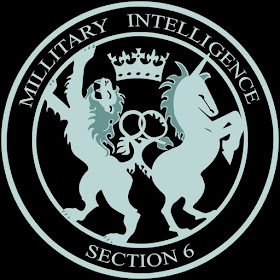The emergence of any person to the highest and
even not so high levels of public officialdom is wont to give rise to a great
level of scrutiny by the media. And when that personage happens to occupy the
throne of St. Peter, apex of a significant part of world Christendom, such
enquiry may assume a level of quite significant intensity.
There are questions. Does the election of a
Jesuit as pope suggest a realignment of the Vatican power structure as well as
the dynamic of influence? For instance, the tendency after the death of John
Paul II was to characterise his papacy as one which facilitated the conditions
favouring the inexorable rise of Opus Dei.
Where does this pope fit into the spiritual-ideological
spectrum of conservatism and reformist tendencies? What are his attitudes in
regard to the responsibility of the Catholic Church towards victims of sexual
abuse by members of the priesthood and what is his record in terms of
condemning such abuse and the enabling of recompense and succour for victims?
There may also be allegations.
There is something of the inevitable in raising
the question of what an Argentine priest was doing during the so-called 'Dirty
War' conducted by the Argentine military against the mainly Left-wing
opposition during the 1970s. And more to the point,
whose side was he on? And even further,
there are allegations emerging regarding Francis’s cooperation with the junta
in regard to the fate of Left-sympathising priests.
Yet, it
should come as no thunderbolt-like revelation if it were ascertained to be the
case that the majority of the Argentine priesthood were supportive of the Junta
and against 'Godless' Leftist guerrillas; for the history of Catholicism is
rife with situations where the church has allied itself with the forces of
authoritarian conservatism against radical social reforming movements of the
political Left.
This was certainly
the case during Franco's 'Holy War' against the 'Godless' Republicans in the Spanish
Civil War of 1936 to 1939. Both Left and Right committed atrocities and so far
as violence against clerics was concerned, churches were desecrated, nuns were
raped and priests were murdered by Republican combatants.
In truth, it
must be said that Catholicism has been allied to both Left and Right wing political
philosophies. There is of course the Left-wing concept of Liberation Theology
as expounded by the martyred Archbishop Oscar Romero of El Salvador.
There has also
been what may be termed Catholic Fascism.
A
species of Catholic Fascism in Argentina can be traced to a European origin.
There were Fascist elements composing the membership of the Organisation de la
Armee Secret (OAS); the secret army which conducted a campaign of terror and
assassination in rebellion against President Charles De Gaulle’s decision to
grant independence to Algeria.
This
came via Cite Catholique, a Right-wing religious-mystical movement formed by Jean
Ousset. The special catechism of the group fused strict piety with strong
anti-Marxist sentiment and a pro-active application of the ways and methods of
counter-insurgency techniques. Among its adherents was Yves Guerin-Serac, the
founder of Aginter Press which was a front for CIA-sponsored training camps for
extreme Right-wing terrorists on the European continent.
A
key official within the group was one Father Georges Grasset. Grasset had been
a member of the French Milice, the paramilitary organisation formed after
Hitler ordered the French army to disband and which hunted down and murdered
members of the French resistance to Nazi occupation and collaboration. He was
the father confessor to many OAS figures and continued ministering to the needs
of those who fled into Argentine exile.
Among
these was Colonel Jean Gardes, the OAS man who was an expert in psychological
warfare. He, along with others with experience of the brutal war conducted in
Algeria involving as it did torture, was responsible for training many of those
military figures in the Argentine military who would conduct the ‘Dirty War’.
There
would of course be no justification in supposing Jesuit priests, with their
ethos of rigorous soldier-like discipline and aggressive proselytisation of the
Catholic faith, as being inevitably predisposed to fascism, any more than would
be the case with reaching such conclusions with the followers of Opus Dei
because of Josemaria Escriva’s support of the forces of fascism and
ultra-conservatism during the Spanish Civil War and its aftermath when many
members of the organisation including Prime Minister Admiral Carrero Blanco
served in Franco’s cabinet.
Yet,
as the leader of a faith composing billions of adherents the record of Pope
Francis as a priest in strife-ridden, dictatorship-bound Argentina is
important. The commonsense view that those of faith should remain aloof from
the politics of the temporal world arguably does not stand the test in
instances of brutal repression.
The
military regime of General Videla and others was responsible for a litany of
human rights abuses including kidnapping, torture and murder and disposal of
thousands who are referred to among Argentineans as ‘Los desaparecidos’ or ‘The
Disappeared.’ The junta also presided over the adoption of the children of
their victims and their re-settlement with regime-friendly families.
It
was frequently the ploy of such authoritarian and nationalist regimes in Latin
America and Europe to profess allegiance to the church but given the
level of oppression and barbarity on display, the expectation would be that
priests would be duty-bound to display the moral courage to condemn the
iniquities and excesses of such governments.
It
was after all the sacrifices of Nazi-era priests such as the recently beatified
Georg Haefner, the protestant pastor Martin Niemoller as well as the anti-Amin
regime Archbishop of Uganda, Janani Luwum whose legacies consistently remind
the world about the standard expected of men of the cloth who exist in the
midst of uncompromisingly violent dictatorships.
This
is why it is important that questions be asked and allegations be investigated
in the case of his holiness Pope Francis I.
(c)
Adeyinka Makinde (2013)
Adeyinka
Makinde is an author based in London where he lectures in law.

